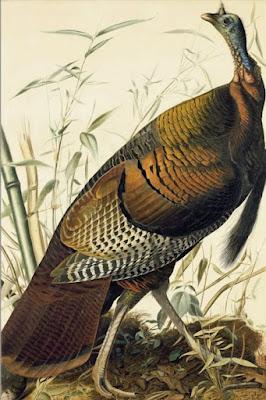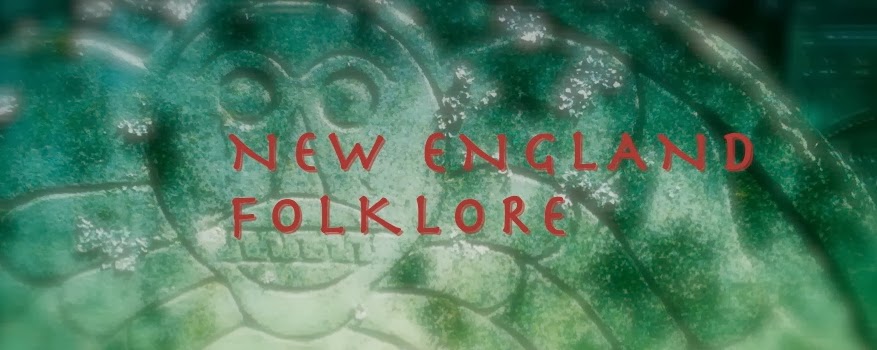Thanksgiving is fast approaching. It's the holiday most closely associated with New England, having its origin in the old Puritan tradition of celebrating thanksgiving days. Many of the foods we associate with the holiday, like cranberries, pumpkins, and turkey, are also foods indigenous to New England.
This is a New England-centric blog, and I like to post something about Thanksgiving each year. So here, from 19th century Massachusetts, are some ways to predict on Thanksgiving what the weather will be during the upcoming winter:
Method #1 - Examine the feathers of your chickens. Do they seem particularly thick? If so, a hard winter is on its way.
Method #2 - Examine the breastbones of your chickens (after you have cooked and eaten them, sadly). Do they seem particularly light in color? If so, you can expect a lot of snow. If they are dark, you won't get much snow at all.
Method #3 - Look at the breastbone of your goose (again, after you have cooked and eaten them). Is it particularly dark? Yes? You can expect more rain than snow.
 |
| James Audubon, Wild Turkey, 1825 |
On the surface, method #1 appears to be the most "scientific." It seems logical that chickens will grow heavier feathers if a cold winter is coming. But do chickens' bodies somehow intuit what the weather will be like in the future, and then grow extra feathers in response to it? Do they actually grow heavier feathers if the next few months will be cold? I don't know think that's true. Chickens do tend to molt in the fall, but I don't think their feathers grown back heavier if the future weather will be cold.
Method #2 seems more magical, and relies on similarity in color: white breastbone = white snow. Method #3 also relies on magical color similarity, but doesn't predict if heavy snow is coming, only the proportion of rain to snow. I guess this is because of the goose's affinity for water? I suppose eating both chicken and goose would give you the most accurate forecast, telling you if you'll get more snow than rain, and also how heavy the snow will be.
I found these methods of predicting the weather in Clifton Johnson's 1897 book What They Say in New England. Interestingly, there's no weather prognostication centered on turkey bones. Turkeys have long been the centerpiece of the Thanksgiving feast, but the magic associated with turkeys is focused on the wishbone.
There are other forms of folk magic based on fowl. For example, Fanny Bergren's 1896 book Current Superstitions contains this unusual piece of advice from Winn, Maine:
"Swallow a chicken's heart whole, and the first man you kiss afterwards will be your future husband."
Chicken hearts apparently had a lot of magical power, because elsewhere in the book Bergren notes the following:
"Swallow a chicken's heart whole and make a wish. It will come true."
I don't think people eat a lot of chicken hearts these days, and even if you do I don't recommend swallowing them whole. You won't get married and your wish won't come true if you choke to death on a chicken heart. Chew your food!
I'm vegetarian, so I'm not eating any of these birds next week. I couldn't find any weather magic involving pumpkins, potatoes or Tofurkey, so let know if you try any of these divinations. I want to be prepared for the winter weather!
